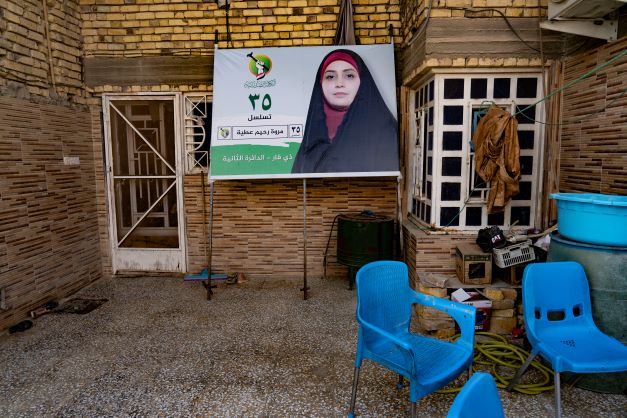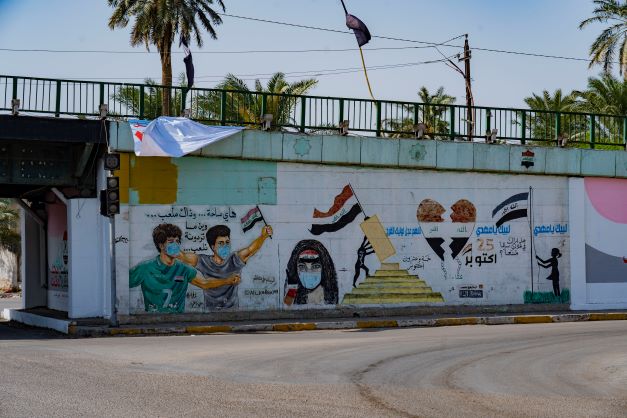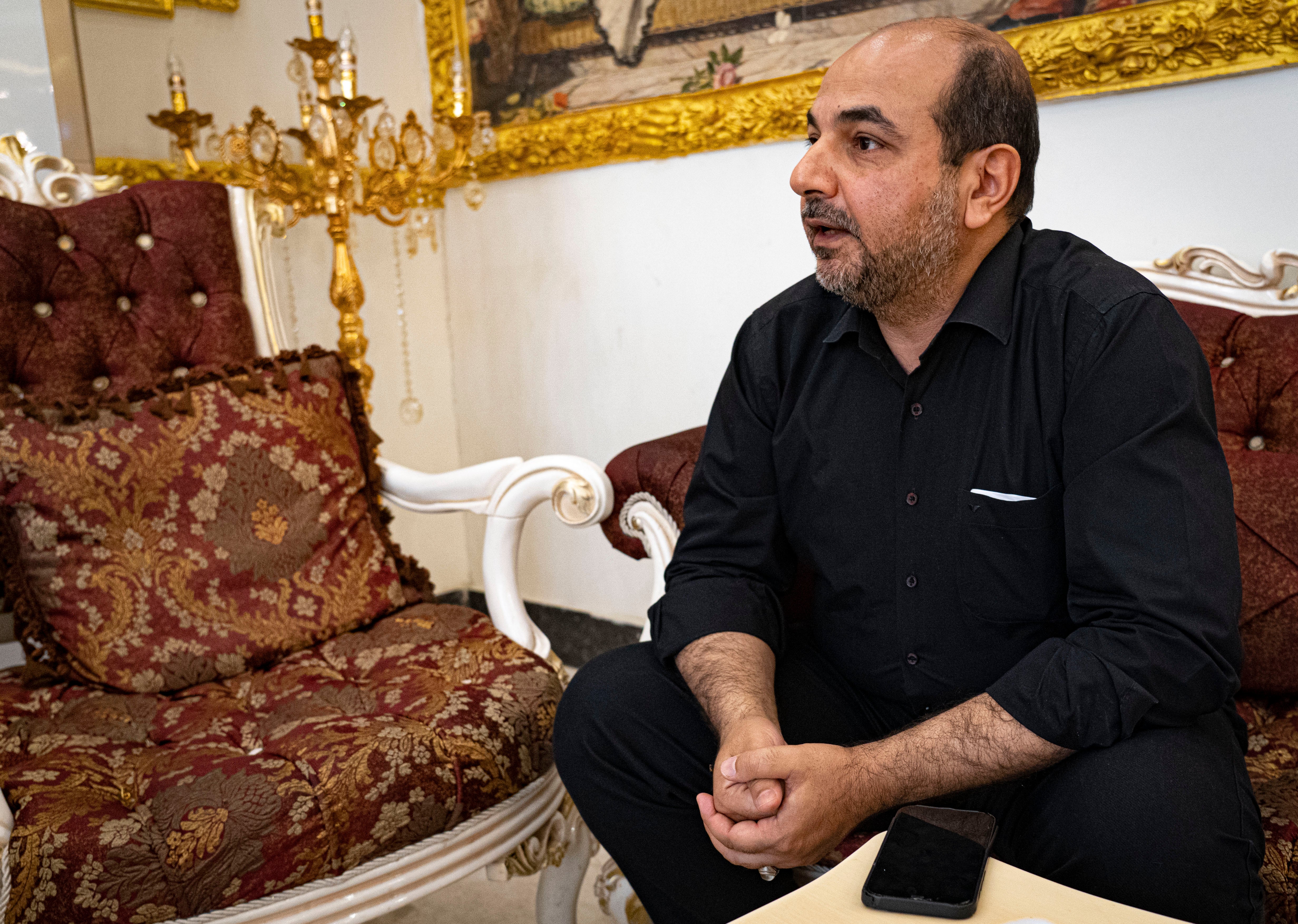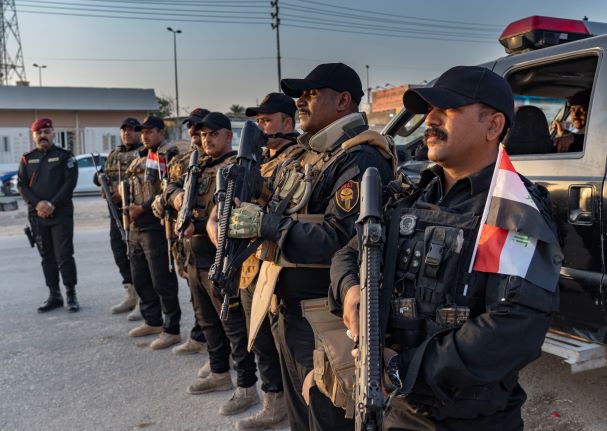The Iraqi protesters point to the smiling photo of their friend Ahmad, 26, who was stabbed to death last year during anti-government rallies, when asked why they are boycotting Sunday’s early election.
Sitting on the floor of one of their homes in the simmering city of Nassiriya, the young men also cite the disappearance of their other friend Sajjad al-Iraqi, a prominent local activist. He was kidnapped at gunpoint by unknown armed groups last September and is still missing.
The election, taking place seven months early, was a key demand of Iraq’s Tishreen uprising which erupted in October 2019 when hundreds of thousands of Iraqis took to the streets demanding jobs, better infrastructure and the removal of the corrupt ruling elite and their affiliated armed factions.
But in Nassiriya - Iraq’s fourth-largest city that has increasingly become the heartbeat of the revolt - many say the elections will achieve nothing.
“Believe me, if we thought participation in this election would bring about any change, nothing would stop us voting,” says Seif, 24, a pharmacy graduate who first joined the uprising as a volunteer medic.
The protests have been met with deadly force; at least 600 protesters and security personnel have been killed nationwide since they started. Nassiriya has seen some of the worst violence.
“This system is too broken to achieve any change because of the main players in it who still hold all the power. “
Next to him is Hayder, 23, who was initially so excited by the vote he joined a newly formed independent political party called Beit Watani (National Home), which has since dropped out of the race.
He asks: “How can we vote when there are assassinations, disappearances?”
Brimming with tens of thousands of additional members of security forces, Iraq is preparing for the fifth national vote since the fall of Saddam Hussein, due to take place on Sunday.
More than 24 million of Iraq’s estimated 41 million-strong population are eligible to cast their ballots. They will choose from nearly 3,500 candidates who are vying for 329 seats in the parliament, nine of which are reserved for the country’s minorities.
How can we vote when there are assassinations, disappearances?
Hayder, 23-year-old resident in Nassiriya
The vote is months early as Iraqi prime minister Mustafa al-Kadhimi agreed to bow to the demands of protesters.
The country’s former intelligence chief was also lauded for pushing through new elections legislation that has broken Iraq up into 83 electoral districts and prevents parties from running on unified lists. Experts say, although not perfect, the legislation could loosen the main political parties’ stranglehold on the legislature.
“It’s a good opening for Iraqis to be included in the political arena, and is better than the previous elections law which had just 18 districts,” says Mohanad Adnan, an Iraqi political analyst and partner at Roya Development Group.
“They also lowered the minimum age of candidates to 28 years old. You can run as an independent.”
But echoing the protesters in Nassiriya, Adnan does not believe the election will bring any real change: the usual suspects are still expected to maintain their grip on power.



